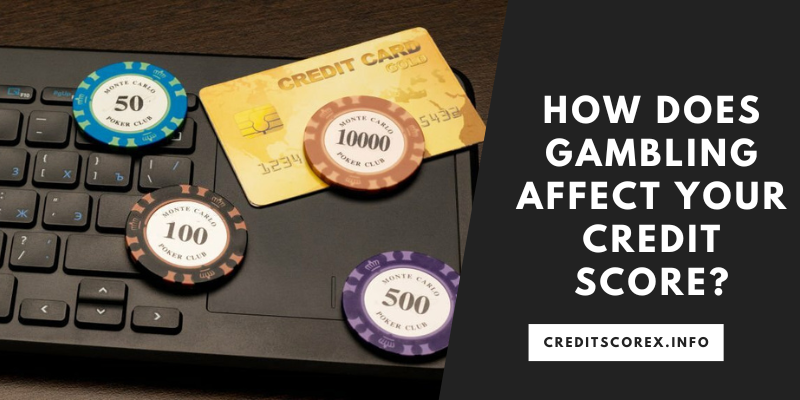
Gambling can be a form of entertainment for many, but when not approached responsibly, it can have consequences that extend beyond the casino floor. One area that individuals may not immediately associate with gambling is their credit score. In this article, we’ll delve into the ways in which gambling can affect your credit score, the associated risks, and strategies for maintaining a healthy credit profile.
1. The Direct Financial Impact: Gambling Debt
One of the most direct ways in which gambling can affect your credit score is through the accumulation of gambling-related debt. If you’re using credit cards or taking out loans to fund your gambling activities and are unable to repay those debts promptly, it can lead to late payments, defaults, and a negative impact on your credit score.
2. Cash Advances and Credit Card Usage: Caution Required
Using credit cards for cash advances to finance gambling is a risky financial behavior. Cash advances typically come with high-interest rates and fees, making the cost of borrowing higher than regular purchases. If you find yourself relying on cash advances for gambling expenses and struggle to repay them, it can contribute to a cycle of debt that affects your credit score.
3. Late Payments and Defaults: Credit Score Consequences
Failure to make payments on debts incurred due to gambling can result in late payment entries on your credit report. Late payments are a significant red flag for creditors and can lead to a decrease in your credit score. Consistent, on-time payments are crucial for maintaining a positive credit history.
4. Credit Utilization: Balancing Act
Credit utilization, the ratio of your credit card balances to your credit limits, is a crucial factor in credit scoring. If you’re using a significant portion of your available credit for gambling and other non-essential expenditures, it can negatively impact this ratio. High credit utilization may be perceived as a sign of financial stress, potentially affecting your credit score.
5. Seeking Credit for Gambling Debt: A Warning Sign
If you accumulate gambling-related debt and then apply for additional credit to cover those debts, it may raise concerns among lenders. Multiple credit inquiries and applications within a short period can be viewed negatively and may result in a temporary decrease in your credit score.
6. Responsible Gambling Practices: Minimizing Financial Risks
To minimize the financial risks associated with gambling and maintain a healthy credit score, consider adopting responsible gambling practices:
- Set a Budget: Establish a budget specifically for gambling activities and adhere to it. Avoid using credit cards or taking out loans to fund your gambling pursuits.
- Avoid Chasing Losses: If you experience losses while gambling, resist the temptation to chase those losses by accumulating more debt. Accepting losses as part of the gambling experience is crucial for financial well-being.
- Monitor Your Finances: Regularly review your bank and credit card statements to track your spending. Being aware of your financial situation can help you identify potential issues early on.
- Seek Help if Needed: If you find it challenging to manage your gambling habits and the associated debts, consider seeking professional help. Credit counseling services and support for gambling addiction are available to assist you in regaining control of your financial and personal well-being.
7. Credit Counseling and Debt Management: Seeking Support
If you’ve accumulated significant gambling-related debts and are struggling to manage them, credit counseling agencies can offer valuable assistance. These organizations can help you develop a debt management plan, negotiate with creditors, and provide guidance on responsible financial practices.
8. Long-Term Consequences: Rebuilding Credit
If gambling has led to negative consequences for your credit score, the path to rebuilding credit involves disciplined financial management. This includes making on-time payments, reducing outstanding debts, and adopting responsible spending habits. Over time, as you demonstrate positive financial behavior, your credit score can gradually improve.
Conclusion: Balancing Entertainment and Financial Health
While gambling can be a form of entertainment, it’s crucial to approach it responsibly to avoid negative consequences for your credit score and overall financial well-being. By setting clear boundaries, budgeting appropriately, and seeking help if needed, individuals can enjoy gambling in a way that aligns with their financial goals. Remember, maintaining a healthy credit score is not just about financial responsibility; it’s also about enjoying life’s pleasures in a sustainable and balanced manner.
Leave a Reply